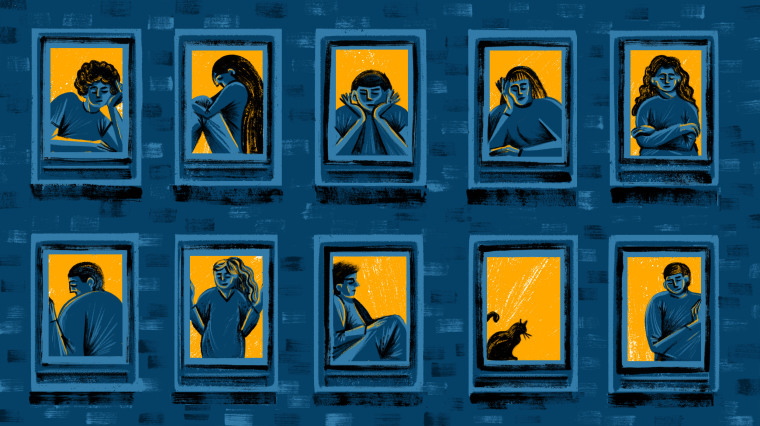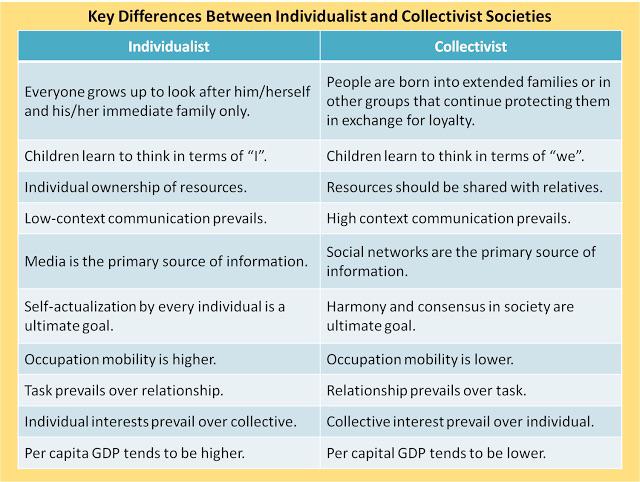Individualism and loneliness—two words that might seem worlds apart, yet in today’s hyper-connected age, they’re increasingly intertwined. We live in a time where we can reach anyone with a tap, yet feel more isolated than ever before. At Remin.site, where we believe memories and meaning outlive mortality, understanding the roots of this loneliness is part of our mission to preserve the deeply human bonds that sustain us—even after we’re gone.

Introduction: The Loneliness Epidemic in a Hyper-Connected World
Despite living in an era defined by digital connectivity, loneliness has become a silent epidemic. According to the World Health Organization, social isolation can be as damaging to health as smoking or obesity. Ironically, while we’ve never had more tools for communication, many of us feel more emotionally detached than ever before. Is modern individualism to blame?
In cities filled with millions of people, individuals often walk alone. It’s not the lack of people—it’s the lack of connection. Our independence, once celebrated, now subtly pushes us into solitude. This piece explores the complex relationship between our culture of self-reliance and the growing emotional void so many feel.
Understanding Individualism in Modern Society
The Rise of Western Individualism
At the heart of Western philosophy lies the ideal of the independent self. From Enlightenment thinkers like Locke to modern self-help gurus, we’re told: “You are enough,” “Be your own hero,” “Stand on your own two feet.” While empowering, these mantras can unintentionally erode our sense of interdependence.
In contrast, many Eastern and Indigenous cultures emphasize communal identity, where the group comes before the individual. The shift toward radical individualism in the West has not only redefined success and freedom—it may also be reshaping how we relate to one another.
Self-Reliance vs Community Interdependence
“We live in a society that rewards self-sufficiency but forgets that we are wired for connection.”
The value of self-reliance is undeniable. It drives innovation, personal growth, and resilience. But when community is devalued, and asking for help becomes a sign of weakness, we begin to suffer. Emotional connection, vulnerability, and mutual support—once the glue of families and neighborhoods—can feel foreign in a world built on competition and comparison.
As research from the Greater Good Science Center shows, the more we prize independence, the more we may be undermining our emotional well-being.
How Individualism Contributes to Loneliness
Disconnection in Urban Life

Walk through a major city and you’ll see crowds of people, all moving fast, all plugged into their own digital worlds. Despite physical proximity, emotional distance prevails. In high-density urban environments, people often lack deep, lasting relationships with their neighbors. The result? Profound loneliness hidden in plain sight.
As Pew Research has highlighted, urban design and fast-paced work culture can contribute to emotional fragmentation. We may live closer together, but that doesn’t mean we connect more.
The Role of Technology and Social Media

On the surface, social media connects us. In reality, it often replaces authentic human interaction with curated performances. Platforms like Instagram and TikTok can create illusions of closeness, while masking emotional disconnection. Likes are not love. Comments are not companionship.
A study by the American Psychological Association found that heavy social media use is linked to increased feelings of loneliness, especially among younger users. When virtual interactions substitute real-life relationships, emotional depth is lost.
- Passive browsing increases comparison and FOMO.
- Online-only relationships often lack emotional nuance.
- Constant notifications reduce our capacity for presence in physical interactions.
Cultural Shifts in Family and Community
Not long ago, most people lived close to extended family, attended community events, and saw neighbors regularly. Today, mobility, career-focused lifestyles, and urbanization have led to a decline in traditional support systems. Nuclear families have shrunk. Multigenerational households are rare. Loneliness fills the gap left behind.
This is especially evident in elder populations, who often find themselves alone after retirement or the passing of a partner. But young adults aren’t immune—many experience a deep sense of disconnection in their 20s and 30s despite being socially “active” online.
Mental Health Impacts of Social Isolation
Chronic Loneliness and Depression
Loneliness isn’t just an emotional inconvenience—it’s a mental health crisis. Chronic feelings of isolation can lead to depression, anxiety, and low self-worth. The Harvard Health Blog notes that loneliness is a risk factor for numerous psychological conditions.
“Loneliness triggers the same part of the brain as physical pain.”
Persistent loneliness alters brain chemistry, increasing stress hormones like cortisol, which in turn disrupt sleep, concentration, and emotional regulation. Over time, it becomes a feedback loop—loneliness fuels mental health struggles, which deepen isolation.
The Physical Health Consequences
It’s not just the mind that suffers. Social isolation can negatively impact the body as well. Multiple studies, including one published in Perspectives on Psychological Science, found that loneliness is as harmful as smoking 15 cigarettes a day. Risks include:
- Increased blood pressure
- Weakened immune system
- Higher risk of heart disease and stroke
- Shortened lifespan
So when we ask, “Is individualism making us lonely?”, we’re also asking: “Is it making us sick?”
In the second half of this article, we’ll explore whether individualism must always lead to isolation, how we can embrace personal freedom while fostering meaningful connection, and what communities—and each of us—can do to restore the emotional ties that bind.
At Remin.site, we believe no memory, no voice, and no soul should be forgotten. Because even in an age of individualism, we are still each other’s legacy.
Counterpoints: Is Individualism Always Harmful?
Positive Aspects of Autonomy
It’s easy to cast individualism as the villain in this growing epidemic of loneliness. But not all aspects of self-reliance are detrimental. In fact, autonomy can be deeply empowering. The ability to think independently, pursue personal goals, and make choices free from external pressure can lead to personal growth, creativity, and even stronger relationships—when balanced with social responsibility.
As Greater Good Science Center highlights, healthy individualism allows people to set boundaries, engage authentically, and show up fully in relationships, because they’re doing so by choice—not obligation.
Balancing Personal Freedom and Social Ties
The issue isn’t individualism itself, but its imbalance. A society that prizes autonomy without fostering connection leaves people isolated. But when freedom and interdependence coexist, we gain the best of both worlds: meaningful lives grounded in personal identity and strong relationships.
This balance can be found in cultures that emphasize both individual dignity and social cohesion—like Scandinavian models, where autonomy is respected but community bonds are nurtured through collective policies and social trust.
“True independence is not about standing alone, but knowing when to lean in, and when to lift others.” — Remin.site
Rebuilding Social Bonds in an Individualistic Age
The Importance of Community Initiatives
While systemic issues drive modern isolation, change can begin at the community level. Local initiatives and grassroots efforts are powerful tools to reconnect individuals in meaningful ways. Here are a few promising approaches:
- Community dinners and potlucks to restore shared spaces for connection.
- Neighborhood events that welcome newcomers and build trust.
- Intergenerational programs that bridge age gaps and transfer wisdom.
Consider the growing popularity of urban co-living projects or “third spaces”—like cafés, libraries, and public parks—that prioritize casual encounters and community over consumption.

Think of these efforts as an umbrella—offering shelter in a storm. We don’t have to give up autonomy to walk together under something shared.
Rethinking Education and Social Values
From a young age, we’re taught to compete, stand out, and be “self-made.” But what if our schools also taught empathy, collaboration, and the value of community? Teaching students how to navigate relationships, manage emotions, and support peers can lay the foundation for a more connected generation.
Values education that emphasizes emotional intelligence, compassion, and civic engagement is not just idealistic—it’s essential. As the Collaborative for Academic, Social, and Emotional Learning (CASEL) notes, students with strong social-emotional skills perform better academically and thrive mentally.
Conclusion: Can We Be Independent Without Being Alone?
So, is individualism the root cause of modern loneliness? The answer is layered. Individualism, in its extreme, fosters emotional detachment. But in balance with empathy and community, it can enrich our lives. We don’t have to choose between being free and being connected—we need to reimagine how we define both.
At Remin.site, we believe the memories we create with others are not just fleeting moments. They are legacies. In preserving them, we resist the isolation that modern life can impose. We reclaim our stories, our voices, and our place in the world—not just as individuals, but as parts of something greater.
Death is not the end. It’s the beginning of the stories we leave behind.
FAQs
What exactly is individualism?
Individualism is a cultural value that emphasizes personal freedom, self-reliance, and independence over group identity or communal responsibility.
Is loneliness really increasing worldwide?
Yes. Studies from the Cigna U.S. Loneliness Index and WHO indicate that loneliness is rising globally, especially in urbanized, high-income nations.
Can someone be highly independent and still have strong relationships?
Absolutely. The key lies in cultivating emotional intelligence, communication skills, and intentional connection while preserving personal autonomy.
How can we fix the loneliness epidemic?
Through a mix of policy, education, and culture change. Strengthening community programs, promoting mental health support, and revaluing relationships in our culture are critical steps.
How does Remin.site help address loneliness?
Remin.site preserves your ideas, memories, and legacy—ensuring you’re remembered, connected, and part of something bigger even after you’re gone. It’s not just storage—it’s belonging that transcends time.
Let’s reconnect. Let’s remember. Let’s not walk alone.
Begin preserving your story at Remin.site today—because your life matters, now and forever.
